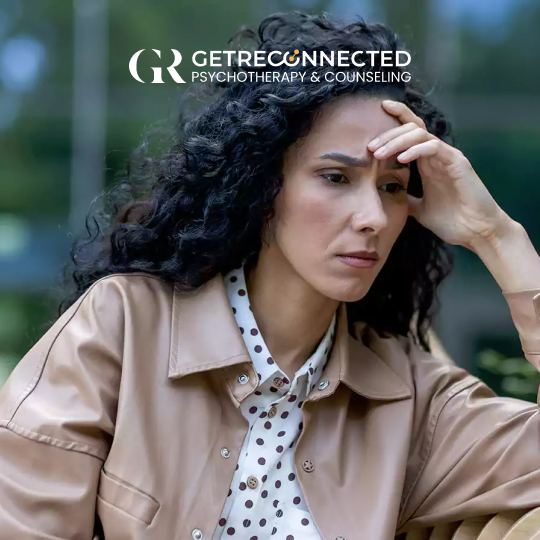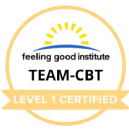Cognitive Behavioural Therapy (CBT) in Toronto
Do you sometimes feel trapped in your thinking? Do you struggle with life decisions, body image, relationships problems, family conflict, or career stress? Cognitive Behavioural Therapy (CBT) might be what you need to tackle your current struggles.
What is Cognitive Behavioural Therapy?
Cognitive-Behavioral Therapy (CBT) is an evidence-based treatment, which means that it has been proven to be effective more often than most other types of therapy.
CBT is a form of therapy that aims to help you identify and modify negative/unrealistic thoughts in order to improve your feelings and behaviours. This is based on the belief that thoughts, feelings, and behaviours are interlinked and that changing one can lead to changes in the others.
CBT can be effective in treating a wide range of issues and concerns, including:
- Depression
- Anxiety disorders (e.g., generalized anxiety disorder, panic disorder, and phobias)
- Eating disorders
- Sleep problems
- Anger management problems
CBT can also be helpful for individuals who are struggling with relationship problems, stress management, or coping with medical conditions or chronic pain.
Benefits of CBT
There are many potential benefits to CBT, including:
- Greater emotional resilience
- Increased self-awareness and self-understanding
- Enhanced problem-solving and coping skills
- Improved relationships with others
- Increased self-esteem and self-confidence
CBT can also help you develop a more positive and realistic outlook on life and learn new ways of thinking and behaving that can lead to improved mental and emotional well-being.
Overall, the goal of CBT is to help you make positive and lasting changes in your life.
What is there to know about CBT before treatment?
- CBT is action-oriented and involves practicing techniques outside of the sessions.
- CBT therapists are not cheerleaders for positive thinking but the aim is to shift negative thoughts into healthy and realistic ones.
- CBT therapists are active in the sessions, provide direction, offer suggestions and teach skills
It is important to remember that it is necessary to practice the skills and techniques outside of the sessions in order to make progress.
Additionally, one should expect to experience challenging moments throughout the course of treatment as it is normal for change to be uncomfortable.
CBT Treatment at Get Reconnected Psychotherapy Services
At Get Reconnected Psychotherapy Services, we work directly on the problems that you are currently facing.
CBT is a collaborative process which means that we will work together in identifying patterns of thinking that are causing distress. We will create a plan, which may include setting goals, exploring alternatives to current thought processes, and practicing new behaviors.
For more information about our approaches, please contact us at [email protected]
If you are ready, book your first session.To learn more, watch this short animated video on CBT
Our Team

Ready for Therapy?
We’ll use what we learn in our first session to make a plan that’s just for you.
For more information about our approaches, don’t hesitate to get in touch with us at [email protected]
Blog

Understanding Overthinking: Insights and Practical Ways to Cope
Understanding Overthinking: Practical Ways to Stop Overthinking Introduction If you are reading this and find yourself to be an overthinker, you are most probably aware

Finding a Good Fit: Navigating Online Therapy Services and Selecting the Ideal Online Therapist
Finding a Good Fit: Navigating Online Therapy Services and Selecting the Ideal Online Therapist Choosing the right online therapist can be challenging and sometimes confusing,

What are the health benefits of mindfulness and how can it help us?
Discover the Health Benefits of Mindfulness Meditation What are the health benefits of mindfulness and how can it help us? Introduction Ever feel like your








